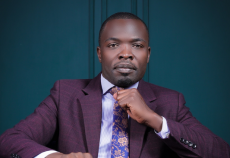- When we talk about inheritance, most people think of land, money, houses, or family heirlooms locked away in cabinets. We imagine formal wills, signed documents, and the quiet reading of who gets what after someone is gone.
- But the truth is, some of the most lasting things we inherit are never written down.
When we talk about inheritance, most people think of land, money, houses, or family heirlooms locked away in cabinets. We imagine formal wills, signed documents, and the quiet reading of who gets what after someone is gone.
But the truth is, some of the most lasting things we inherit are never written down. They don’t come with lawyers or title deeds. They come in silence, glances, unspoken rules, and habits we don’t even realize we’ve learned.
We inherit the way our parents speak—or don’t speak—when they’re angry. We inherit the way they love, or withhold love. We pick up how they cope with stress, how they handle failure, how they define success.
Some inherit the belief that rest is laziness, while others grow up learning that love must always be earned through performance. No one sits us down to teach these lessons, but somehow, we absorb them anyway.
A father may never raise his voice, but his absence shouts in a child’s memory. A mother may never say she’s overwhelmed, but the tight way she moves around the house, the way she sighs and doesn’t ask for help, teaches a daughter that softness is a luxury only the privileged can afford.
Read More
These are the quiet inheritances — the ones that don’t make headlines, but shape lives.
In many homes, fear is inherited like furniture: polished, protected, passed on. Not because anyone intended harm, but because no one ever stopped to ask where it came from, or whether it still served a purpose.
We don’t talk about it enough — how trauma, anxiety, and emotional absence can trickle down through generations. Not because people were bad, but because they were doing the best they could with what they had.
But we also inherit strength. We inherit laughter that erupts even in the darkest seasons. We inherit songs sung in kitchens, prayers whispered through closed doors, and the kind of resilience that doesn’t show up in fancy speeches but in daily acts of survival.
The grandmother who raised six children on her own. The brother who dropped out of school to help put food on the table. The mother who swallowed her own dreams to make room for ours. That too is inheritance.
Still, the question remains: what do we do with all of it?
Do we carry it forward blindly? Do we repeat what we hated, simply because it’s all we knew? Or do we pause — take stock of what we’ve received and decide what ends with us?
Not everything handed down deserves to be passed on. Maybe you grew up in a home where no one said “I love you.” That doesn’t mean you can’t flood your own children with words of affirmation.
Maybe you watched your parents burn out because they never said “no.” That doesn’t mean you can’t model balance and boundaries. You’re allowed to rewrite the script.
The truth is, you don’t have to wait for death to decide what you’ll leave behind. Every day, in the way you speak, react, forgive, hold space, or choose silence — you are writing your legacy.
And perhaps the most powerful kind of inheritance is the one where someone down the line says, “It was different with them. That’s where the healing started.”
No paperwork. No witness. Just a quiet, courageous choice.
To inherit is human. But to transform what we inherit — that is where the magic begins.




-1769608133-md.jpg)




-1769608133-sm.jpg)

